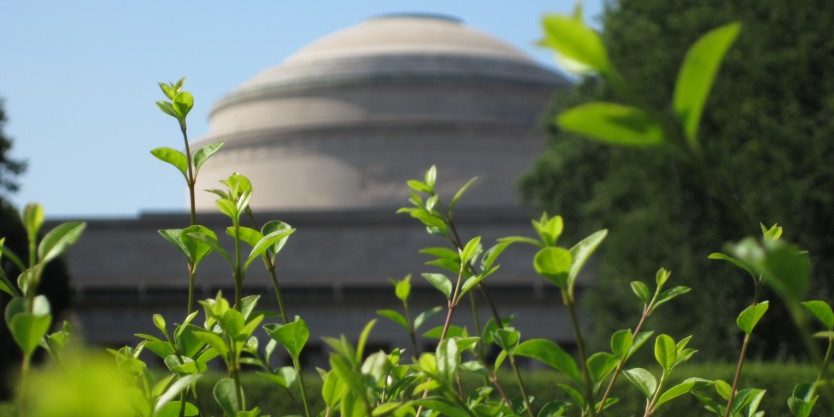It’s that time of year again. The universal reply date for colleges has just come and gone, so students are dealing with the aftermath of making a decision under a great deal of pressure. It would be nice to think that once the decision is made everything’s smooth sailing, but I am seeing evidence all around me that says otherwise.
In just one week:
I got a call from one of my best childhood friends, desperate as her 17-year-old son — a straight-A student — was in a psychiatric hospital going through trials of treatment for extreme depression and anxiety with suicidal ideation. (I know this issue first-hand, since I attempted suicide my senior year in high school myself.)
Another friend called distraught that her college freshman daughter on the other side of the country was suicidal and had dropped out of school.
And yet another friend’s daughter — who last year was rejected from the school both her parents attended and smartly took a gap year to take some time from the intense pressure cooker of her competitive private school — applied to a different legacy institution and was rejected yet again.
The national media has noticed what’s going on with our rising high school students. Last month New York Times columnist Frank Bruni’s piece on “the best, brightest — and saddest” Palo Alto high school students. The sons and daughters of our tech industry titans who’ve experienced a string of suicides among their stressed-out classmates. Two days later, The Wall Street Journal featured a range of expanded efforts to help teenagers heading for college deal with the mental health issues they may, or already do, face.
For some, gap years between high school and college can be so, so helpful. I wish I had taken one, and my friend’s daughter who just left school suddenly had been on the cusp of taking one before she enrolled. A gap year is one of many valuable options for students who are overwhelmed or stressed by making these important decisions. Tuning in and being self aware enough to make this type of plan for the year after high school is exactly the kind of self care and advocacy skills that students will need when they transition to college.
As mentioned in the Wall Street Journal article, proactive approaches are important and a fine example of this is a college-readiness program for high school seniors with anxiety disorders and depression created by Dr. Anne Marie Albano, director of the Columbia University Clinic for Anxiety and Related Disorders.
The importance of finding support and creating individualized solutions cannot be emphasized enough and was the overarching theme at this year’s Saks Institute Spring Symposium at the USC Gould School of Law. The symposium’s schedule always seems to dovetail with the college acceptance process, which makes its subject matter resonate strongly with my own experience and the tough news I’ve been hearing from my friends.
The major message of the Saks symposium was that, despite the fact that mental health remains a public health emergency in this country, there is a new mental health paradigm on many campuses. Schools around the nation are responding to the challenges they see their students facing and are making changes. There is much to celebrate!
I was struct by the fact that the words love, community, and mindfulness were seeded throughout the presentations by these thoughtful leaders. The emphasis in their work with students is on compassion, education, connection, and giving them the tools to care and advocate for themselves. It was one conversation after another filled with hope!
We learned about programs that, as Saks Institute Board Chair Steve Behnke said so perfectly during his remarks, “create places for students to learn and to grow in their wisdom.”
The question for the rest of us is whether we can grow in our wisdom and create both high school and college environments that dial down the pressures all students are feeling these days, and provide the full range of compassionate, professional support for many students dealing with mental health challenges. The presenters from Cornell shared their powerful and inspiring “Caring Community” work with us. Can we learn from them and create caring communities on every campus?
We all need help developing and maintaining skills of self-care and advocacy. We must remember that the health of our brains isn’t a fixed quality with all of us living somewhere on this spectrum of mental health. If we’re really concerned about an educational system that leaves no child behind and allows everyone to race to the top, such a commitment to mental health in our schools, colleges and communities is essential
If you — or someone you know — need help, please call 1-800-273-8255 for the National Suicide Prevention Lifeline. If you are outside of the U.S., please visit the International Association for Suicide Prevention for a database of international resources.
Resources
Saks Institute Symposium
Videos of each session and copies of the slideshows are available on the symposium homepage
Flawless Foundation
Blogs, Videos and upcoming Symposium on this topic
Ross Szabo, mental health advocate who has spoken to over a million college age students.
Jed Foundation Promoting Emotional Health and Preventing Suicide
Active Minds Changing the conversation about mental health
RULER Approach Emotions Matter
Emotion Revolution Summit High School Students — Take the Emotional Revolution survey and change our schools!







